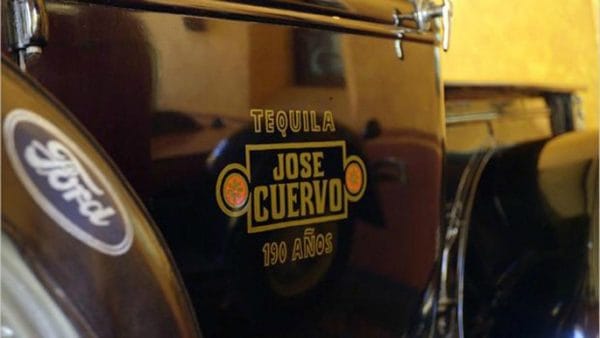Drink Up: Ford Develops Tequila By Product for Car Use

Has Ford gone nuts? Tequila for cars?
No, actually, Ford is acting responsibly, testing a sustainable agave waste product.
Reduce, reuse, recycle is not a mantra often uttered by car company executives, but Dr. Deborah Mielewski of Ford has been finding innovative ways to reduce the company’s environmental imprint for almost 30 years.
Her newest development raises the bar, literally. Debbie, Ford Senior Technical Leader, Plastics and Material Sustainability, Materials and Manufacturing Research Department, is working with Jose Cuervo to use an agave plant byproduct from tequila production in bioplastics.
Debbie, who got her undergraduate degree and Ph.D in Chemical Engineering from the University of Michigan in Ann Arbor, has spent her career at Ford and initiated the sustainability program in 2001 with a soy-based foam suitable for automotive seating.
Never in the dumps: happy at home and work
But her interest in recycling goes back to her childhood, where her father a World War II veteran, loved to stop at the dump and scavenge useful materials. Debbie says she cannot stand not finding “the next purpose” for materials, and noted that she loves passing her children’s toys on to other Ford employees.
“That’s why I’m so happy when I get to work’” she said. “I can be efficient at work AND at home.”
She’s Not Looney Tunes
Debbie admitted that not everyone sees the sunny side of waste immediately. “When you propose foam made from carbon dioxide, people think you are loony tunes,” she said. That foam is not yet ready for prime time; other products in development include tomato peels and algae.

Deborah Mielewski and some of her bio products developed for Ford. Photo: Judy Antell for AGirlsGuidetoCars
From Senor Frogs to Ford labs
Ford has a plant in Mexico so when the company was exploring sustainability at its plant there, “there was an aha moment” when we looked at the local waste stream. Debbie pointed out that in the midwest, “which is swimming in soy” we thought of re-purposing soy waste, which lead to the soy foam used today. In Ontario, where there is another Ford plant, there was a surplus of wheat, which lead to the development of wheat straw being used in vehicles.
Ford asked Jose Cuervo what it did with its agave waste and learned there was really no use for it. But the family owned company, the number one maker of tequila, had initiated its own sustainability plan and was eager to collaborate with Ford. Debbie and her team are testing the plastic they’ve developed for use in wiring harnesses, HVAC units and storage bins.
There is no danger in the plastic being attractive to animals who would then eat the car parts; the plastic is completely contained.
Besides diverting the fibers into the waste stream, the bio plastic has the advantage of being lightweight, so the car will use less fossil fuel.
One challenge, though, has been odor. The bioplastic made from the agave fibers has a slight roasted odor; agave fibers are roasted before the grinding and extracting process, and although the smell is not unpleasant, Ford doesn’t want to add a smell to its cars.
What trash? Debbie sees a supply stream
Other sustainable materials Debbie has developed, which are used in Ford vehicles, include soy foam used as seat cushions, seat backs and head restraints; wheat straw deployed to reinforce storage bins and cellulose in armrests.
One thing Debbie won’t be contributing to is the production of agave waste. Although she admitted to sampling tequila since she started out on the project, she said her husband’s Canadian heritage makes them a beer drinking family.
So maybe we will start seeing hops in cars one day.
